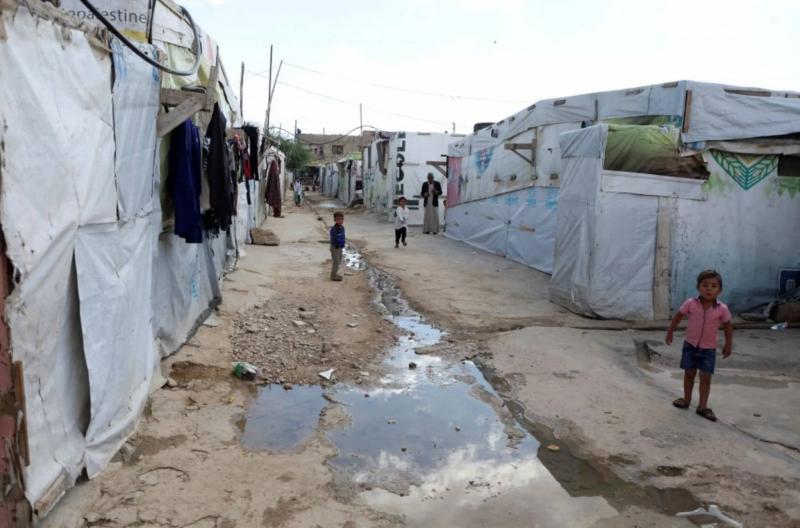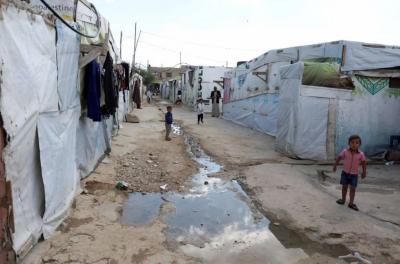The holiday breaks that Lebanon experienced in recent weeks, including the Eid al-Fitr holiday, did not pave the way for any long-awaited breakthroughs in the presidential file. On the contrary, the country has entered a more complicated phase following the holidays, with the French initiative regarding the election of "Mardah" party leader Sleiman Frangieh as president in exchange for former ambassador Nawaf Salam taking the premiership wobbling.
Initially, there was hope that the Iranian-Saudi agreement would push this initiative forward, but it has become apparent that American interference to obstruct this achievement also reflected on Lebanon. The Saudi position remains cautious, delaying a final stance on Frangieh's candidacy, while it is revealed that the Americans, contrary to their claims, are not welcoming the French initiative and are opposed to the election of the "Mardah" leader.
Sources monitoring developments in the presidential file stated that "the recent statement from the French Foreign Ministry, in which Paris announced it does not have a candidate for the presidency in Lebanon, is a step backward after it became clear to them that there are external obstacles, primarily American, in addition to many internal obstacles, notably the positions of the two main Christian blocs, namely the 'Free Patriotic Movement' and the 'Lebanese Forces,' which oppose Frangieh, hindering the progress of the initiative towards a happy conclusion."
The sources added: "However, this does not mean that France has abandoned its initiative. In brief, it is waiting for better conditions to activate it, especially since it is fully aware, due to its relations and close monitoring of the Lebanese file, that there is no opportunity to make any breach in the wall of the crisis without considering Hezbollah's stance, which has shifted to a position of rigidity, rejecting even discussing the names of other candidates."
The sources pointed out that "the most significant factor that pushed it to slow its efforts was the hardline stance of the Lebanese Forces, as it was believed that the members of the 'Strong Republic' would secure a quorum for Frangieh's election session amidst the final rejection from the Aounist side, but the series of statements from the Lebanese Forces, the latest being the position of LF leader Samir Geagea, all confirm that the path for Frangieh is not smooth, especially after Maarab rejected offers, such as having the central bank governor directly associated with them and suggesting the name of former minister Camille Abou Sleiman."
The sources stated: "The current parliamentary compositions do not allow for Frangieh's election unless the 'Strong Republic' or 'Lebanon Strong' secures the quorum for the session."
As expected, the rigidity of opposition forces, led by the Lebanese Forces, coupled with sharp American intervention to undermine efforts for the resumption of Saudi-Iranian relations, has prompted a response from Hezbollah. After Hezbollah's Deputy Secretary-General Sheikh Naim Qassem clearly stated that the country is facing two candidates: Sleiman Frangieh or vacuum, the head of its executive council, Sheikh Hashem Safi al-Din, went further with a warning that "Lebanon is currently in a very dangerous phase, not only in a crisis but is now transitioning from a state of turmoil to that of chaos."
Informed sources on the party's position noted that "the situation is not reassuring, and the refusal of the other team to extend a hand means they want confrontation." They added: "It is now abundantly clear, both in the region and domestically, that there are those who want and work for unity, accord, and the advancement of our nations, while conversely, there are those who seek sedition, destruction, and division, noting that the weaker team will pay the price for its erroneous bets sooner or later."
In light of political stagnation and the return of matters to square one regarding the presidency, fears of an explosive security situation stemming from the file of Syrian displacement have increased. Monitoring sources of the file warned that "the Lebanese measures regarding the arrest of displaced persons and their deportation, coupled with granting municipalities extensive powers in this area, lead to heightened tensions between the Lebanese and Syrian communities, necessitating an urgent governmental meeting to take decisive decisions in this regard following regional developments."
The sources pointed to "fears of foreign interventions using this file for specific purposes to escalate the Lebanese situation and push towards certain directions, like reviving partition proposals that some have begun to call for again." The sources said: "Mobilizing the displacement file at this timing and in this manner is not innocent, requiring much caution and prudence, as the speedy return of the displaced to their country is a primary condition in any plan to revive the country, but this return must occur in an organized and official manner; otherwise, the growing tension between Lebanese and Syrians may explode."




